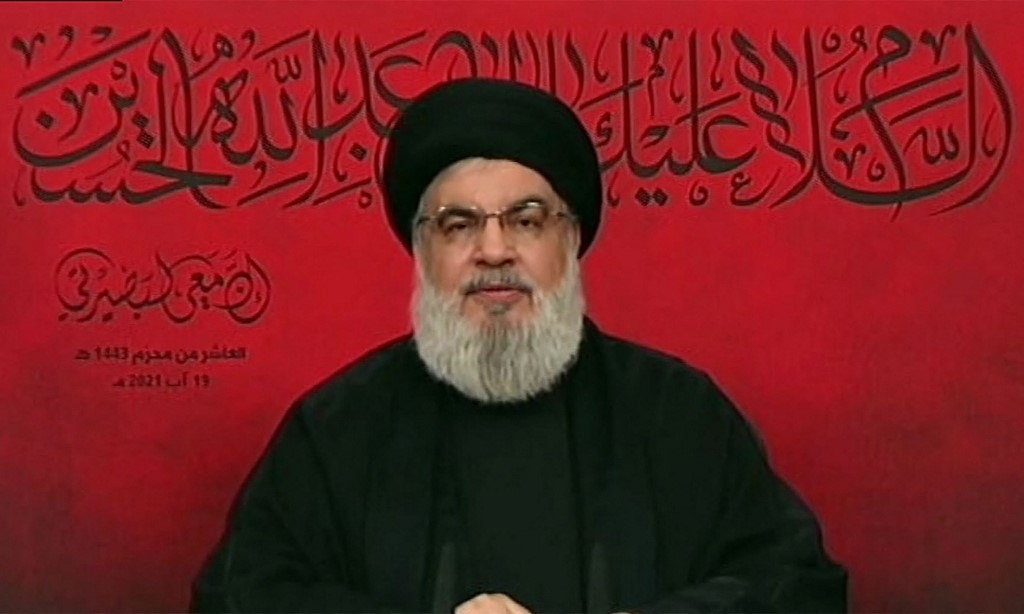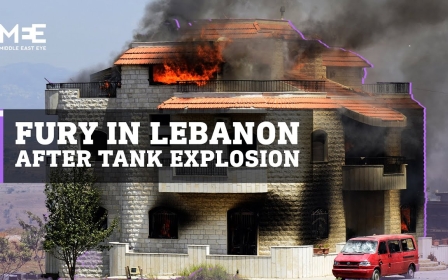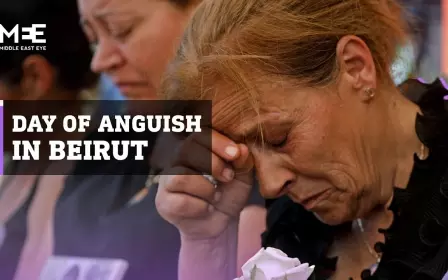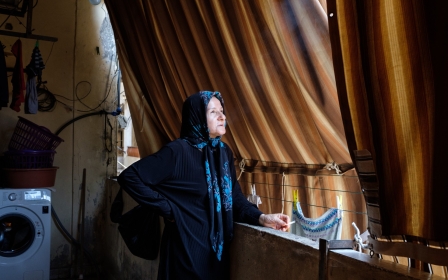Hezbollah: Iran fuel tanker set to sail to Lebanon, defying US sanctions

An Iranian oil tanker is expected to sail to Lebanon “within hours” to deliver urgently needed fuel supplies to the country suffering from a crippling economic crisis, the Lebanese Hezbollah movement said on Thursday.
"The vessel, from the moment it sails in the coming hours until it enters (Mediterranean) waters, will be considered Lebanese territory," Hezbollah chief Hassan Nasrallah said in a televised speech to mark the Shia Muslim holiday of Ashura.
"To the Americans and Israelis, I say: it's Lebanese territory."
Nasrallah has repeatedly stated that Hezbollah would be able to help bring oil from its ally Iran while bypassing the Lebanese central bank in order to avoid violating US sanctions.
The shipment of oil would constitute a breach of US sanctions on Tehran, and has the potential to drag Lebanon into a confrontation between Iran and Israel.
New MEE newsletter: Jerusalem Dispatch
Sign up to get the latest insights and analysis on Israel-Palestine, alongside Turkey Unpacked and other MEE newsletters
However, Nasrallah said that the move was aimed at supporting the Lebanese people.
"We don't want to get into a challenge with anyone, we don't want to get into a problem with anyone. We want to help our people," he said.
There was no immediate comment from the Lebanese government. Tehran has not confirmed Nasrallah’s claims.
Former Lebanese Prime Minister Saad Hariri denounced Nasrallah’s statements.
"Iranian vessels will carry additional dangers and sanctions for the Lebanese," he said in a statement on Twitter. “Considering the Iranian ships [in] Lebanese territory constitutes the climax of compromising our national sovereignty… as if [Lebanon] is an Iranian province.
“We will not, under any circumstances, be a cover for projects to plunge Lebanon into futile wars hostile to the Arabs and the world.”
Lebanon is grappling with a financial crisis branded by the World Bank as one of the world's worst since the 1850s.
Foreign currency reserves are fast depleting, while the central bank has scaled down funding for imports in an effort to shore up the little money Lebanon has left.
The Lebanese pound has lost more than 90 percent of its value on the black market in less than two years, and 78 percent of the population lives below the poverty line.
On 11 August, central bank chief Riad Salameh said he would scrap fuel subsidies to ease pressure on fast-depleting foreign reserves.
His decision sparked panic, worsening the already long queues forming outside bakeries and petrol stations as Lebanese struggled to stock up.
Last month, Iraq signed an agreement to provide the Lebanese government with 1 million tonnes of heavy fuel oil a year in return for goods and services, which Lebanon’s caretaker energy minister, Raymond Ghajar, said would be used for electricity generation and would be enough for four months.
Middle East Eye delivers independent and unrivalled coverage and analysis of the Middle East, North Africa and beyond. To learn more about republishing this content and the associated fees, please fill out this form. More about MEE can be found here.





